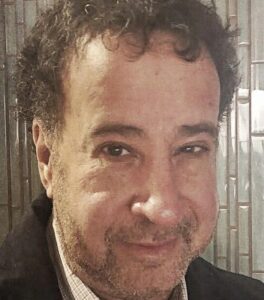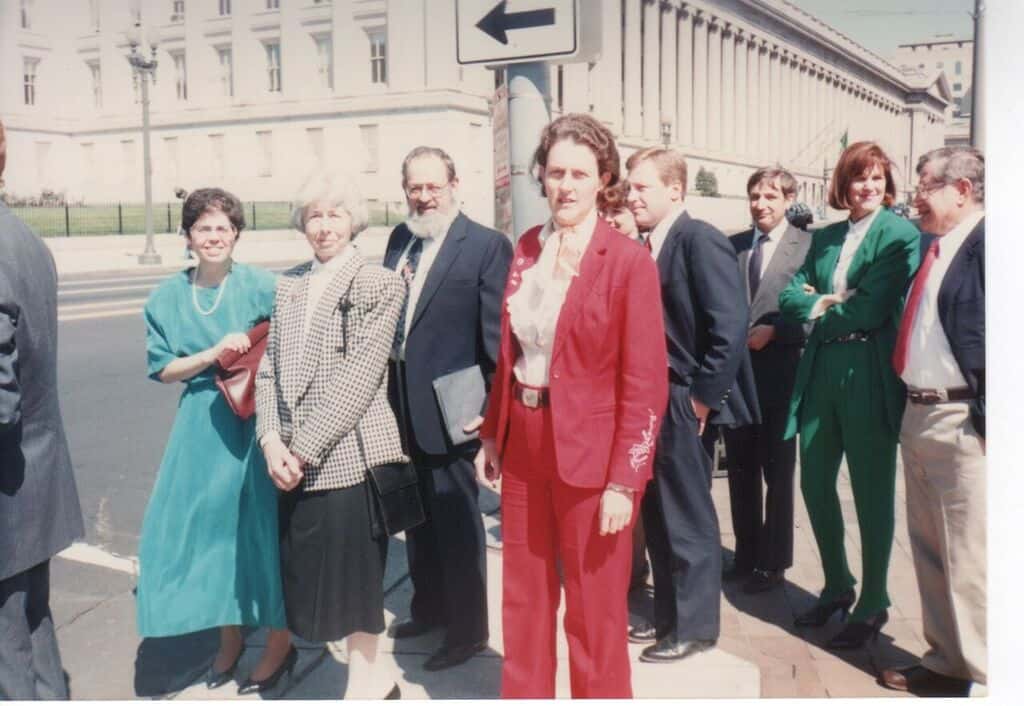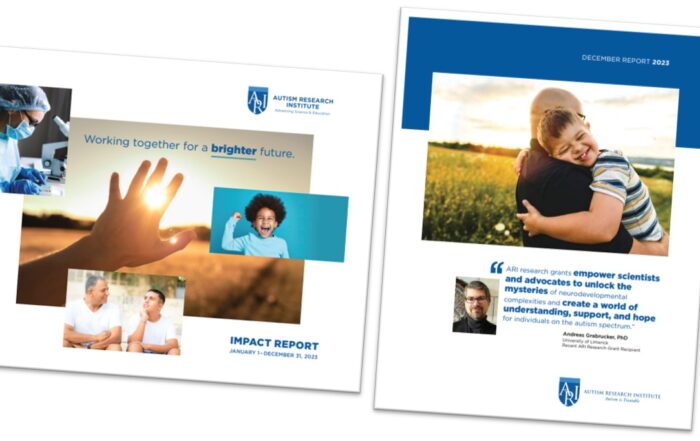 I was fortunate to know Dr. Bernard Rimland for nearly 30 years and worked closely with him for more than 20 years. From the time he established the Autism Research Institute, he held ARI to the highest standard possible. As we celebrate ARI’s 50th anniversary year (1967-2017), I would like to share his values – and ours – with you. These are the cornerstones of our philosophy at ARI.
I was fortunate to know Dr. Bernard Rimland for nearly 30 years and worked closely with him for more than 20 years. From the time he established the Autism Research Institute, he held ARI to the highest standard possible. As we celebrate ARI’s 50th anniversary year (1967-2017), I would like to share his values – and ours – with you. These are the cornerstones of our philosophy at ARI.

Integrity. Dr. Rimland was tireless in his quest to increase knowledge about autism. Identifying the causes of and interventions for autism was, and still is, a primary concern of ARI.
At the same time, countless parents and professionals worldwide depend on ARI to provide accurate information. To do this, we comb the science literature, talk with experts in the field and related areas, and listen to the concerns of those on the spectrum and their parents. We then share this knowledge in our newsletters, webinars, websites, social media, books, and other venues.
We are mindful of the need to advance the field of autism while supporting those on the autism spectrum and their families. Like most organizations, we carefully contemplate how to best direct our funds and energy. Dr. Rimland always asked: “What is in the best interest of the autism community?” — never “What is in the best interest of ARI?” Following this simple principle, solutions always present themselves.
Dr. Rimland insisted on keeping ARI completely independent of outside influence. Unlike most moderate- and large-scale autism non-profits, ARI does not accept contributions from government agencies, pharmaceutical and insurance companies, and businesses that provide autism-related services and products. For many years, Charity Navigator has awarded ARI its highest, four-star rating based on our transparency, accountability and sound fiscal management.
Innovation. Dr. Rimland never accepted the status quo. His award-winning 1964 book Infantile Autism shattered the prevailing belief that autism was due to maternal emotional neglect. During the 1960s, he changed the course of the field by emphasizing the importance of genetics, the environment, and neurology in relation to autism. Over the next 30 years, he expanded his focus to include nutrition, restricted diets, behavior modification (or ABA), sensory interventions, medical co-morbidities, and adults on the spectrum.
Today, ARI continues to invest in innovative research projects that have the potential to revolutionize our ideas about the causes and treatment of autism. Frequently, we fund small-scale investigational studies, ranging from $5,000 to $30,000, that are designed to examine cutting-edge ideas. If the results are encouraging, the investigator then has science-based pilot data that will increase the likelihood of obtaining financial support from larger funding agencies. Since we feel that there is an urgency to help those on the spectrum, we do our best to minimize delays in the review and funding process.
Excellence. As many of us know, individuals on the autism spectrum and their family members often feel unheard and struggle to receive appropriate support from professionals, government agencies, and insurance companies. Dr. Rimland wanted ARI to be a forum where barriers faced by the autism community are discussed and actively addressed.
Today, ARI’s Board of Directors, staff, and I continue to be attentive to the needs of our constituents. We are aided by an outstanding Scientific Advisory Panel that includes many top researchers in the field, hailing from such universities and hospitals as Arizona State University, Boston University, Cleveland Clinic, Massachusetts General Hospital, UC Davis, UCLA, UC San Diego, the University of Arkansas, the University of Chicago, and the University of South Carolina. All of these scientists are active within the organization, participating in our webinars, writing and editing articles for us, reviewing grant proposals, and attending our think tanks.
Empowerment. Because there are no guarantees that any given treatment for autism will be beneficial, those on the spectrum or their caregivers often need to make difficult treatment decisions. To empower them to make informed decisions, we disseminate science-based information on our website, through our webinars, and in our publications. Often, parents share our information with professionals to make them better aware of the biomedical issues affecting individuals with autism.
Hope. Hope for the future is fundamental in light of the many challenges faced by individuals on the spectrum and their families. We are aware of the dangers of giving false hope, but at the same time, we oppose the idea of giving no hope.
One way ARI provides hope for the future is by reporting on promising treatments. We published a popular book, Treating Autism: Parent Stories of Hope and Success, which we later followed up with an expanded edition. The book contains articles written by parents who successfully used various interventions to help treat their children’s behaviors and medical co-morbidities. We have also published books on the biomedical treatment approach (five editions), the Specific Carbohydrate Diet, and nutritional supplements. Recently, we were instrumental in the publication of the book titled Understanding and Treating Self-Injurious Behavior in Autism.
Another way ARI encourages hope is to inform the medical community about the best treatments for those on the autism spectrum. We publish a bimonthly e-newsletter for obstetricians, pediatricians, and nurses, outlining the latest peer-reviewed research that is relevant to their practice. Connecting physicians to improved standards of care is crucial to our mission. In joint providership with the Cleveland Clinic, we continue to offer complimentary CME-certified online education to amplify understanding of the medical nature of the disorder.
Community. Since day one, we have always taken the perspective that “we are all in it together.” Dr. Rimland cared about people worldwide. He would often say that a child with autism in Japan was just as important as a child with autism in San Diego. He had ARI’s diagnostic checklist translated into 40 different languages, added the word “International” to the title of our science newsletter, the Autism Research Review International, and lectured on autism throughout the world.
Over the years, we have made a concerted effort to develop open lines of communication with all organizations within the autism community. We do this through social media platforms, conferences, think tanks, in-person meetings, and conference calls.
ARI continues to support the international autism community. We are a member of the United Nations (NGO, non-government organization), communicate with autism organizations worldwide on a regular basis, have translated many of our articles as well as our popular Autism Treatment Evaluation Checklist (ATEC) into different languages, and have helped sponsor an annual international conference in Eastern Europe for the past five years.
—
The vision that Dr. Rimland established for the Autism Research Institute 50 years ago is the same vision that guides our work today. As a result, professionals, individuals with autism spectrum disorders, and their families worldwide can rely on ARI for cutting-edge research, unbiased and accurate information, practical help, and powerful advocacy.
Stephen M. Edelson, Ph.D.
Executive Director, Autism Research Institute
This editorial originally appeared in Autism Research Review International, Vol. 31, No. 3, 2017
Editorial – Fecal Microbiota Transplantation and Autism
Over the past several years, Fecal Microbiota Transplantation (FMT) has become the subject of growing interest in the autism community due, at least in part, to the increased awareness of the gut-brain
ARI’s Latest Accomplishments
Connecting investigators, professionals, parents, and autistic people worldwide is essential for effective advocacy. Throughout 2023, we continued our work offering focus on education while funding and support research on genetics, neurology, co-occurring medical
Biomarkers start telling us a story: Autism pathophysiology revisited
Antonio Persico, MD, a recent ARI Research Grant recipient, explores the role of biomarkers in understanding autism pathophysiology. He discusses the complexity inherent to neurodevelopmental conditions and emphasizes the need to combine




